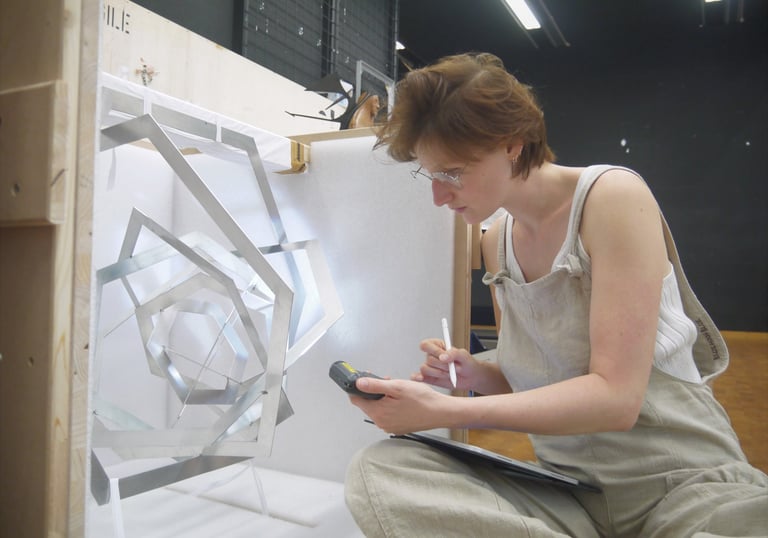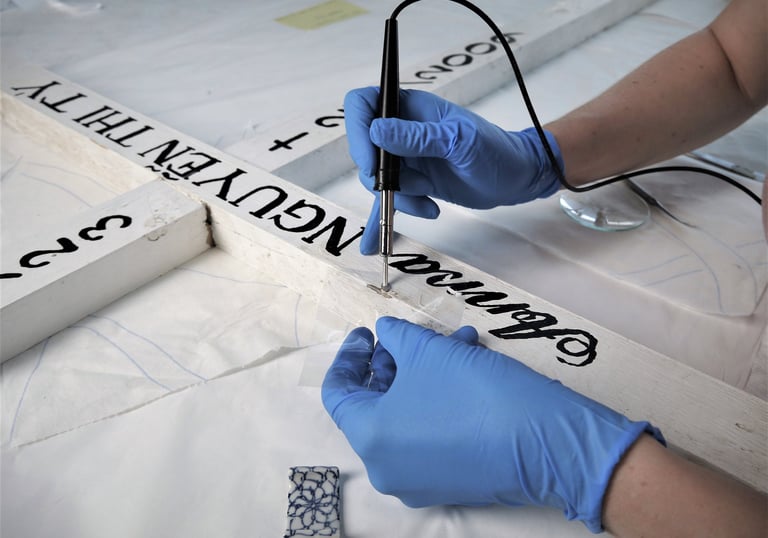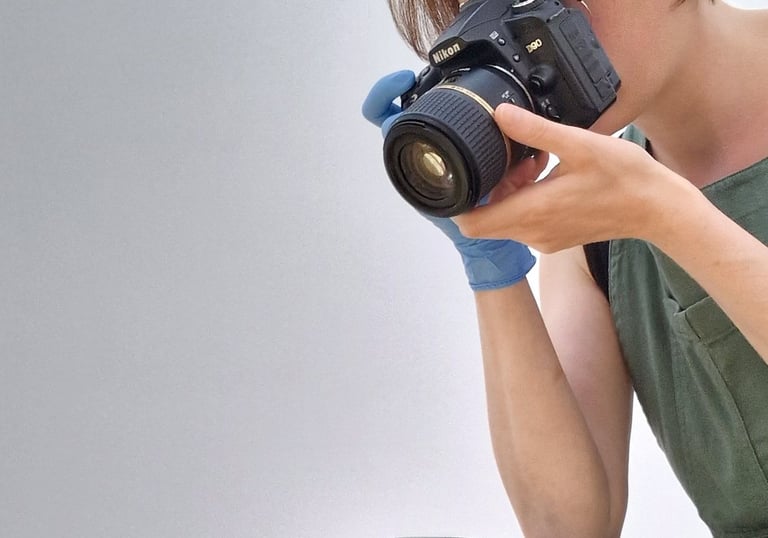S E R V I C E S
Tailored to each client
Whether you are a private collector, a public institution, an art market professional or a private individual, my services are adapted to each client's needs, for the good of the collections.
My training in preventive conservation coupled with my specialization in contemporary art offers a variety of knowledge and skills adapted to the preservation of a wide range of materials.
The workshop is based in Annecy, France. But as I am a nomadic conservator, do not hesitate to contact me whether you are in France, Switzerland, Germany, Italy or elsewhere. Free estimate.
P R E V E N T I V E C O N S E R V A T I O N
R E S T O R A T I O N
Surface cleaning and removal of exogenous products
Material consolidation
Crack and Break Repair
Chemical Degradation Treatment
Retouching, enrichment of the aesthetic value
Filling and reintegration
Polishing of plastic (PMMA)
Care and cleaning of corroded metal
Condition report: complete inspection of the condition of a work, diagnosis and prognosis (impact of alterations on cultural values)
Analysis of alterations and their origin
Proposal of an intervention project
Recommendation and maintenance
Tailor-made packaging
Documentation
Climatic study; analysis of the work's environment
I have had the opportunity to work on a variety of materials, from plastics (plexiglass, polyethylene, polyester) to metals (archaeological and modern) to organic materials (wood). Each work is unique and requires a diverse knowledge of material chemistry in order to give them the appropriate care within the deontological rules of conservation.






